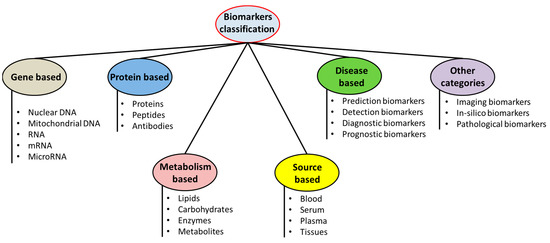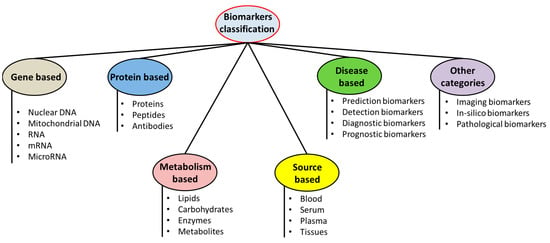
# Groundbreaking Genomic Analysis from UCSF: A Transformative Leap in Infectious Disease Detection
—
An innovative genomic testing technique pioneered at the University of California, San Francisco (UCSF), has attracted significant recognition for its revolutionary capacity to precisely identify a range of infectious agents in sample specimens. This groundbreaking strategy, outlined in a **November 2024 study featured in *Nature Medicine* and *Nature Communications***, has demonstrated an impressive ability to accurately diagnose **86% of neurological infections** in an extensive clinical trial.
This advanced technology signifies a monumental advancement in the timely detection of viruses, bacteria, fungi, and parasites in patients with ambiguous diagnoses. It holds the promise of surpassing traditional diagnostic techniques, potentially transforming how clinicians address infectious diseases and providing a formidable instrument for the prevention and management of future pandemics.
## A Single Test for Various Pathogens
The technique, referred to as **metagenomic next-generation sequencing (mNGS)**, adopts an unparalleled methodology to diagnostics by sequencing every genetic material within a patient’s specimen. Instead of targeting a singular pathogen type, mNGS evaluates and recognizes the complete array of possible harmful organisms present—whether they be viruses, bacteria, fungi, or parasites. This all-encompassing method eliminates the necessity of conducting multiple tests for different microorganism categories, streamlining what previously required several testing phases into one efficient operation.
From **2016 to 2023**, researchers extensively evaluated this technique by examining **almost 5,000 cerebrospinal fluid (CSF)** samples from patients exhibiting neurological symptoms with unknown origins. The findings were extraordinary: in 86% of cases where an infection was detected, the metagenomic analysis precisely identified the involved pathogen. Such levels of accuracy and comprehensiveness have not been achievable through other conventional diagnostic techniques, which often depend on preconceived notions regarding the probable cause of an illness.
## Reducing Diagnosis Time from Days to Hours
A pivotal instance that underscores the life-saving capabilities of this technology transpired in **2014**. A young boy from Wisconsin became severely ill, but his medical team could not ascertain the reason for his condition after standard testing proved ineffective. Time was of the essence for the young patient. In a last-ditch effort, his healthcare team opted for the UCSF mNGS test. In **less than 48 hours**, the sequencing analysis disclosed that he was suffering from **leptospirosis**, a bacterial ailment that, while perilous, is treatable. Once the accurate diagnosis was established, his doctors promptly commenced penicillin therapy, leading to a rapid and complete recovery.
As the speed of this diagnostic method continues to advance, the UCSF group aspires to provide even quicker results to healthcare providers. According to Charles Chiu, a professor of laboratory medicine and infectious diseases at UCSF and a key innovator of the technology, the objective is to finalize the entire protocol within **12 to 24 hours**, facilitating a **same-day or next-day diagnosis**.
“We developed this to remove the uncertainty involved in diagnosing infections and to expedite the process, allowing clinicians to initiate appropriate treatments almost instantaneously,” stated Chiu.
## Enhancing Pandemic Readiness
The continuous efforts to refine and broaden mNGS applications extend beyond just neurological illnesses. Inspired by its success with cerebrospinal fluid samples, the UCSF team has **modified the technology for the swift identification of respiratory infections**, which are often more challenging to diagnose and can spread rapidly.
In light of recent global experiences with the SARS-CoV-2 pandemic, Chiu and his colleagues believe their technology is essential for future pandemic readiness. The new respiratory-focused mNGS test, which produces results **within 24 hours**, has been fine-tuned to identify a range of viruses with pandemic potential, including **SARS-CoV-2, influenza**, and **respiratory syncytial virus (RSV)**.
This system is distinguished by its ability to recognize known pathogens even in minimal quantities while also being capable of detecting new viral variants. With growing worries about emerging infectious diseases, this technology could facilitate **early outbreak detection**, equipping public health officials with advance alertness before an epidemic escalates into a worldwide crisis.
## Consequences for Healthcare Systems
The clinical significance of this technological advancement is immense. Thousands of patients who might otherwise experience delays of days or weeks for a conclusive diagnosis could instead receive treatment within hours. Medical professionals often refer to the “golden window,” a pivotal interval during which early intervention can profoundly impact the difference between a complete recovery and prolonged complications or even mortality. In the realm of infectious diseases, the promptness of diagnosis directly affects the possible results for patients.
Furthermore, mNGS inherently alleviates the financial and operational strain associated with necessitating multiple specialized tests for a diagnosis. Healthcare systems globally stand to gain from reduced costs, laboratory errors, and time allocated to conjecture.
